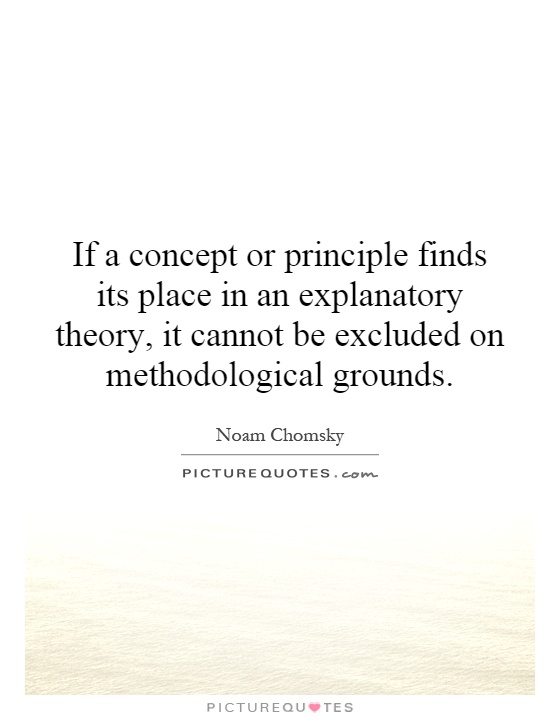If a concept or principle finds its place in an explanatory theory, it cannot be excluded on methodological grounds

If a concept or principle finds its place in an explanatory theory, it cannot be excluded on methodological grounds
Noam Chomsky, a renowned linguist, philosopher, and cognitive scientist, is well-known for his groundbreaking work in the field of linguistics. Chomsky's theories have had a profound impact on the study of language and cognition, and his ideas have been influential in a wide range of disciplines. One of the key principles that Chomsky has emphasized in his work is the importance of explanatory theories in understanding complex phenomena.Chomsky has argued that if a concept or principle finds its place in an explanatory theory, it cannot be excluded on methodological grounds. In other words, if a particular idea is necessary for explaining a phenomenon, then it should not be dismissed simply because it does not fit neatly into existing methodological frameworks. Chomsky's emphasis on the importance of explanatory theories has led to a reevaluation of traditional approaches to scientific inquiry, and has opened up new possibilities for understanding the world around us.
One of the key concepts that Chomsky has developed in his work is the idea of universal grammar. According to Chomsky, all human languages share a common underlying structure, which is hard-wired into the human brain. This universal grammar provides the foundation for language acquisition and use, and helps to explain the remarkable similarities that exist between different languages. Chomsky's theory of universal grammar has been highly influential in the field of linguistics, and has led to a reevaluation of traditional approaches to language study.
Chomsky's emphasis on explanatory theories has also had a significant impact on the study of cognition. Chomsky has argued that the human mind is not a blank slate, but rather is equipped with a set of innate cognitive structures that shape our understanding of the world. These innate structures help to explain why humans are able to learn language so quickly and effortlessly, and why certain cognitive abilities are universal across cultures. Chomsky's ideas have challenged traditional views of cognition, and have opened up new avenues for research in the field.












 Friendship Quotes
Friendship Quotes Love Quotes
Love Quotes Life Quotes
Life Quotes Funny Quotes
Funny Quotes Motivational Quotes
Motivational Quotes Inspirational Quotes
Inspirational Quotes